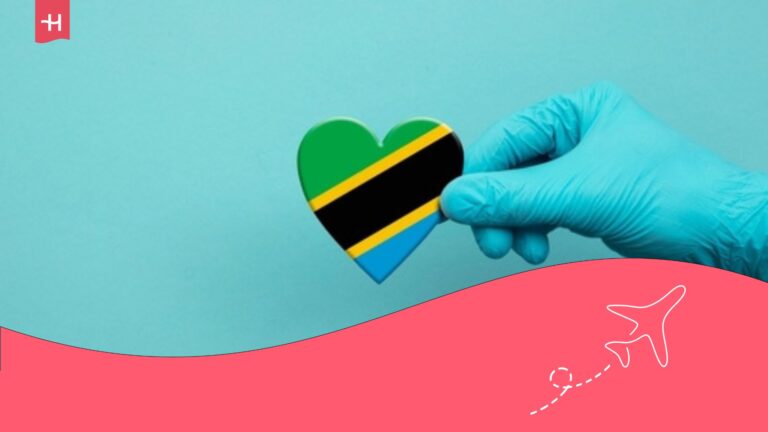Volunteering in Thailand: Requirements, best programs, and costs
Working with animals, teaching English, environmental projects or collaborating with communities are types of volunteering in Thailand.
Ancient temples, lush rainforests, beaches, and a culture that welcomes you with a warm smile. Thailand isn’t just a place to visit, it’s a place to truly experience. And there’s an even deeper, more meaningful way to discover it: volunteering in Thailand.
Being part of these projects is more than just lending a hand. It’s about becoming part of a community, learning with humility, experiencing different realities, and leaving a meaningful impact while growing personally. Whether you want to work with animals, teach English, get involved in environmental initiatives, or support rural communities, you’ll find opportunities that resonate with your passions and values.
In this article, you’ll find everything you need to get ready: the real benefits of volunteering in Thailand, requirements, the top programs available, the kinds of projects you can join, the costs you’ll need to budget for, and all the essential tips to make your experience both unforgettable and life-changing.
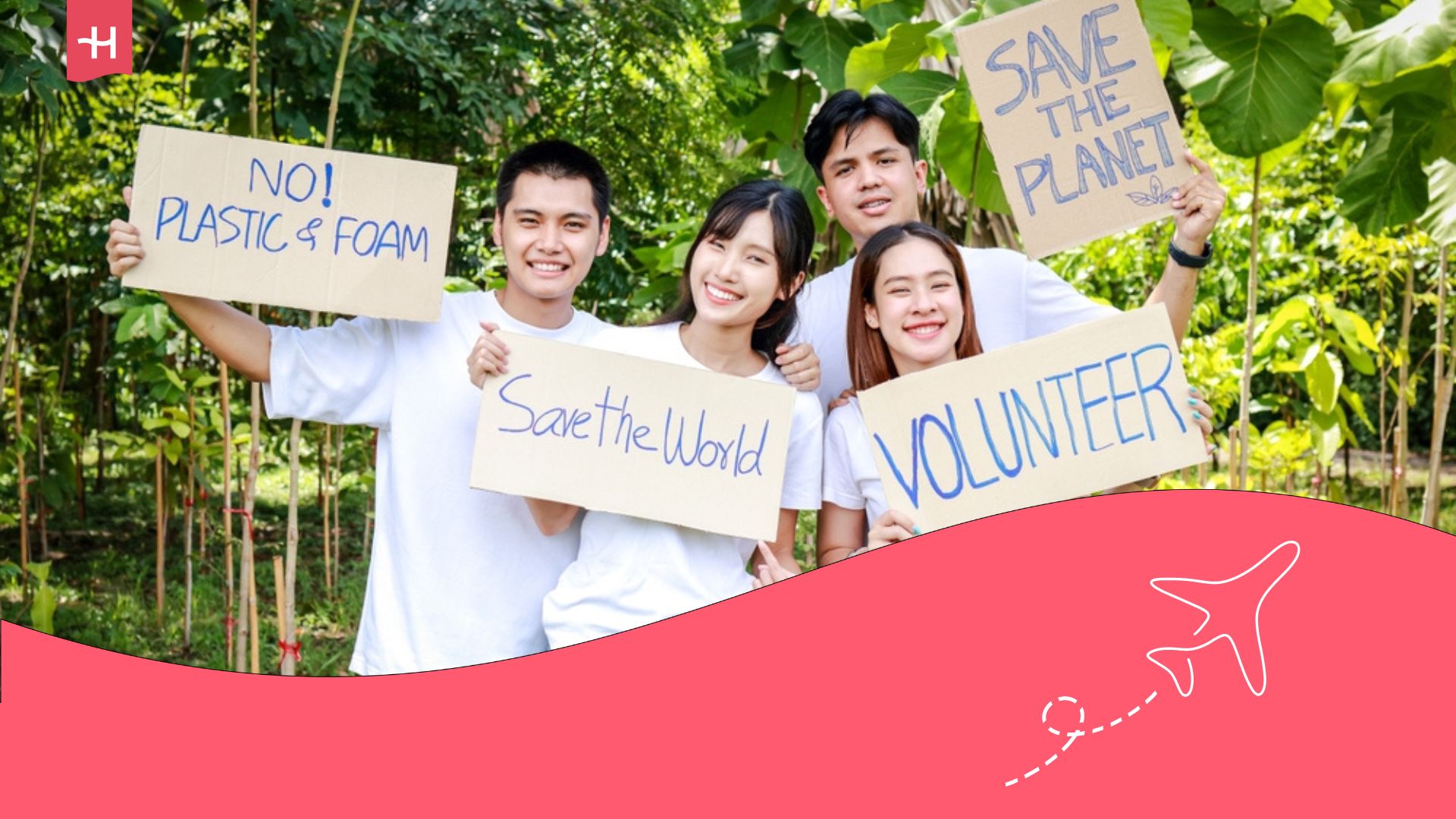
What are the benefits of volunteering in Thailand?
Thailand is one of the top choices for travelers who want to give back, and it’s easy to see why. Volunteering there is an experience that blends culture, nature, human connection, and a sense of purpose.
These are the main benefits you can expect:
1. You’ll discover a deeply spiritual culture
Thailand, known as the “Land of Smiles,” is famous for its warm hospitality, strong Buddhist roots, and deep respect for community. As a volunteer, you’ll have the chance to live alongside people who cherish meditation, silence, togetherness, and harmony with nature. Every gesture, from a simple greeting to sharing a meal, offers a glimpse into the “sabai sabai” way of life, the art of living peacefully and with ease.
2. You’ll participate in projects with real impact
From rescuing elephants to teaching in rural areas, projects in Thailand usually have a clear, local, and sustainable focus. What you do every day makes a direct difference in the community or environment. And the best part? You’ll get to see that impact firsthand.
3. You learn and teach at the same time
Even if you’re not a teacher, many volunteer opportunities let you teach English, assist with hygiene workshops, share digital skills, or help with schoolwork. In return, you’ll learn about local customs, pick up some Thai phrases, discover traditional cooking, and experience Buddhist rituals. Volunteering in Thailand is all about a continuous exchange.
4. You’ll live affordably in one of the most desired destinations
Thailand is a very affordable destination compared to other volunteer spots. Most programs include accommodation and food, and even if they don’t, everyday expenses are pretty low. That means you can stay longer, get around easily, and make the most of your time without worrying about overspending.
5. You’ll meet volunteers from all over the world
Every year, thousands of volunteers from around the world come to Thailand. You’ll likely be working alongside people of all ages and backgrounds, which is a great chance to make new friends, build networks, and even spark future collaborations. Plus, Thailand is a hotspot for digital nomads, so if that’s your vibe, expect to meet plenty of like-minded people from all corners of the globe.
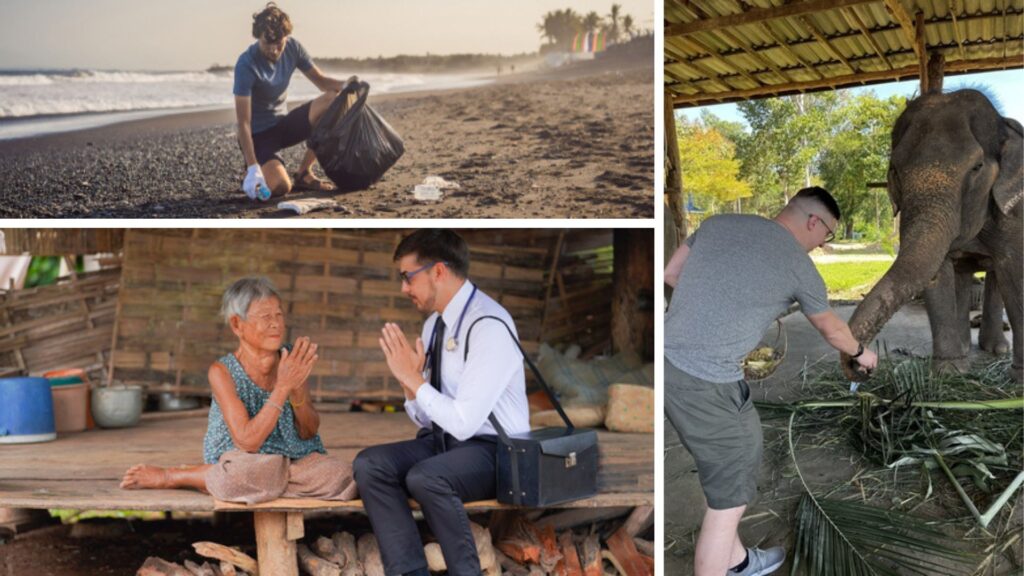
What are the requirements for volunteering in Thailand?
Thailand is a friendly and easy-to-access spot for anyone wanting to volunteer. To make sure everything runs smoothly, it’s key to know what’s required before you go. These rules can change based on how long you’ll stay, the type of project, the location, and the group organizing it. But there are some general things most programs have in common. Let’s break them down:
1. Appropriate visa for volunteering in Thailand
Sorting out your visa is one of the first and most important steps. While many travelers enter on a tourist visa, some official programs may ask for a special volunteer visa. Here are the most common options:
- Tourist Visa (TR): This is the most popular choice among volunteers. It lets you stay for 60 days, with the option to extend for another 30. It’s ideal for short-term, unpaid programs.
- Special Volunteer Visa (O): For longer-term projects with a registered NGO in Thailand, you’ll probably need this visa. It’s a bit trickier to obtain but can last anywhere from three months up to a year. Usually, the organization you’re working with will help you sort it out.
- Visa-free: Citizens of certain countries can enter Thailand visa-free for up to 30 days. But if you’re planning to volunteer, it’s best to apply for a Tourist Visa to avoid any issues with immigration.
The best way to avoid mix-ups is to check directly with the volunteer organization or the Thai consulate in your country. Keep in mind that some smaller programs might be fine with you arriving on a tourist visa, but if you’re volunteering with an official NGO, you’ll need to get the right visa before you travel.
2. Minimum age and volunteer profile
Most programs welcome volunteers who are 18 and older. However, certain projects (like teaching or childcare) often ask for volunteers who are at least 21 or have some prior experience. There are also family-friendly options and programs for teens, as long as they’re accompanied by an adult.
Besides age, many organizations look for volunteers who are physically and emotionally healthy, open to learning and adapting to new environments, respectful of local culture, and able to work well in a team.
3. Language: Basic English and cultural interest
While Thai is the official language, English is widely used. You don’t need to be fluent, but having a basic grasp helps you follow instructions, connect with the team, and communicate with other volunteers.
It’s also a bonus if you know some basic Thai and are curious about Buddhist traditions, the wai greeting, and the local way of life.
4. Medical and liability insurance
While it’s not required to enter the country, having health insurance is essential for your peace of mind. Thailand offers excellent private healthcare, but it can get expensive if you’re not covered. So make sure your policy includes:
- Medical expenses (minimum $100,000).
- Medical repatriation.
- Coverage for volunteering (some insurances exclude physical or rural activities).
Tip: Check that your policy covers emergencies in remote areas if you will be working with animals, on farms or in jungle areas.
6. Reliable internet and mobile data
Many rural areas in northern Thailand (like Chiang Rai, Pai, and Nan) have spotty signal. Even on Koh Lanta or in villages near national parks, WiFi can be unreliable or nonexistent. So if you’re traveling solo, it’s reassuring to have mobile data to stay connected, especially if you’re moving between different regions. Monthly plans from Holafly can be a real lifesaver.
Forget about roaming fees or hunting for local SIM cards — just install your eSIM, and within minutes you’ll have unlimited data to use across Southeast Asia and beyond.
Important: If you are a frequent traveler and want to stay connected without worrying about expensive roaming or looking for a new SIM at every destination, Holafly’s subscription plans are for you. With a single eSIM, enjoy internet in more than 170 countries for a fixed price and no surprises on your bill. Travel without limits and connect easily and securely! 🚀🌍

What are the best volunteer programs in Thailand?
You’ve got a good grasp of the benefits and requirements for volunteering in Thailand. Now it’s time to explore the programs offered by the top organizations. There are plenty of options out there, so take your time researching to find the one that best matches your goals.
1. Kindred Spirit Elephant Sanctuary (Chiang Mai)
Set high in northern Thailand’s mountains, this sanctuary is dedicated to helping rescued elephants get back to living freely in the wild. Volunteers get to go on daily walks to watch the elephants, help teach English to the local Karen people, and dive into the culture around them. It’s a truly unique chance to spend time with these amazing creatures—and maybe pick up some wisdom along the way.
Bonus: If you’re studying or working in fields like biology, conservation, veterinary medicine, or sustainable tourism, volunteering at an elephant sanctuary can be a real boost for your resume. You’ll gain hands-on experience in ethical animal care and responsible ecotourism, skills that can open a lot of doors down the road.
Program details:
| Requirements | Over 18 years old. Good physical condition for mountain trekking. |
| Duration | From 1 week to 12 weeks. |
| Includes | Accommodation in local houses. Meals. Training and cultural activities. |
| Price | From $595 per week. |
| Popular programs | Elephant behavior monitoring. Teaching English to the community. Cultural workshops with the Karen community. |
2. Elephant Nature Park (Chiang Mai)
If volunteering with elephants in Thailand sounds exciting to you, another great option is Elephant Nature Park. This well-known sanctuary provides a safe haven for elephants rescued from abuse. Volunteers get involved in feeding, bathing, and caring for the elephants, as well as helping with the upkeep of the park.
Program details:
| Requirements | Over 18 years old. Interest in animal welfare. |
| Duration | Programs of one day, one week or more. |
| Includes | Accommodation. Vegetarian meals. Transportation from Chiang Mai. |
| Price | From 2,500 THB (approx. $70) per day. |
| Popular programs | Weekly volunteering with elephants. One-day visits with educational activities. Environmental conservation programs. |
3. Openmind Projects (Nong Khai and other regions)
Openmind Projects is a nonprofit based in Nong Khai that has been tackling poverty through education and community development since 2001. They offer volunteer programs across Thailand, Laos, Cambodia, and Nepal, focusing on teaching English, digital skills, environmental conservation, and empowering local communities. As a volunteer, you could be teaching English or computer skills, or getting involved in ecotourism and conservation efforts.
Program details:
| Requirements | Over 18 years old. Intermediate level of English. Commitment and adaptability. |
| Duration | From two weeks to several months. |
| Includes | Accommodation. Previous training. Continuous support. |
| Price | From $495 for two weeks. |
| Popular programs | English teaching in rural schools. Ecotourism projects in local communities. Conservation of national parks. |
4. Andaman Discoveries (Province of Phang Nga)
Andaman Discoveries is a social enterprise based in Kuraburi, Phang Nga province, born out of the 2004 tsunami to help rebuild coastal communities. They run volunteer programs focused on education, environmental conservation, and community development, all while promoting responsible tourism and sustainability.
Program details:
| Requirements | Over 18 years old. Interest in community development. Basic level of English. |
| Duration | From one week to several months. |
| Includes | Accommodation in local homes. Meals. Training. |
| Price | From $600 per week. |
| Popular programs | English and job skills training. Mangrove reforestation and beach cleaning. Development of sustainable tourism projects. |
5. Volunteering Solutions (Chiang Mai and other regions)
Volunteering Solutions is a global organization with lots of volunteer opportunities in Thailand, mainly around Bangkok and Chiang Mai. Their programs blend meaningful work with the chance to discover the local culture and breathtaking landscapes.
Program details:
| Requirements | Over 17 years old. Basic level of English. Positive and flexible attitude. |
| Duration | From 1 week to 24 weeks. |
| Includes | Accommodation. Meals. Orientation and support. |
| Price | From $250 per week. |
| Popular programs | Teaching English in elementary schools. Child care in orphanages. Assistance in community health clinics. |
Types of volunteer projects in Thailand
Thailand stands out as one of Southeast Asia’s top spots for volunteering, offering a wide range of opportunities. Whether it’s working in nature reserves, rural schools, Buddhist temples, or coastal communities, there’s a diverse and rewarding way to get involved. Each project addresses real local needs, like environmental protection, improving education, animal rescue, social empowerment, or boosting the local economy.
The real value is that every part of Thailand faces different challenges. Teaching English in the hills of Chiang Rai isn’t the same as helping clean coral reefs on Krabi’s shores. So, when choosing a project, it’s important to understand the local needs and find one that matches what you’re good at and passionate about.
Here are the main types of volunteer projects in Thailand and what you can expect from each one:
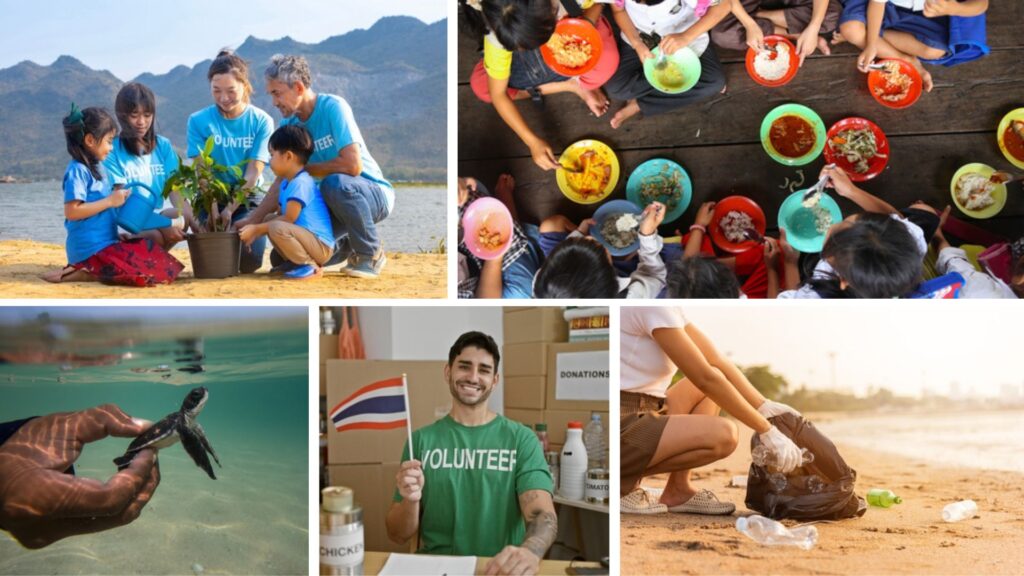
1. Rescue and care of elephants
This is one of the most popular volunteer projects in Thailand. Many elephants have unfortunately been exploited by the tourism industry, which led to the creation of organizations dedicated to rescuing them and providing a more natural environment. As a volunteer, you’ll help prepare food, join jungle walks, monitor the animals, and assist with sanctuary upkeep.
Where: In northern Thailand, around Chiang Mai and Chiang Rai, you’ll find opportunities to volunteer in Karen communities or eco-sanctuaries. Often, this means living in rural areas with little to no cell signal, surrounded by mountains and lush nature. It can be challenging, but it’s also a chance to reconnect with yourself.
2. English teaching in rural schools
English is an important tool for progress in Thailand, but resources can be limited in rural areas. As a volunteer, you might teach basic English, help with educational activities, or simply provide opportunities for locals to practice conversational English.
Where: North and Northeast of the country (such as Mae Hong Son, Isaan, Nan). There are also programs in the south, in coastal communities that live off tourism.
3. Marine and coastal conservation
Marine conservation projects often focus on beach cleanups, coral restoration, and environmental education. Some also involve monitoring local wildlife, replanting mangroves, and collaborating with local fishing communities.
Where: Areas such as Krabi, Koh Lanta, Phuket or Phang Nga. These are areas with great biodiversity, but very affected by mass tourism and climate change.
4. Community work and child care
If you prefer working with kids, volunteering in Thailand offers the chance to support orphanages, halfway homes, or community centers that assist vulnerable children and families. Your role might involve spending time with the kids, playing games, teaching basic lessons, running workshops, or simply offering care and emotional support. Many programs also combine this with health education and promotion.
Where: Chiang Mai, Bangkok, and some southern regions.
5. Support in meditation centers and Buddhist retreats
If you want to experience Buddhist culture while contributing, volunteering at temples or retreat centers might be perfect for you. You’ll help out with everyday chores like cleaning, cooking, and organizing, and in return, you’ll get a place to stay and the opportunity to join in spiritual activities.
Where: Temples in Chiang Rai, Ayutthaya and rural areas. Also in jungle or coastal retreats, where the experience can be transformative.
6. Organic agriculture and sustainability
This type of volunteering involves working on organic farms, permaculture projects, or eco-villages. Tasks can range from planting and harvesting to making compost, building with natural materials, and joining sustainability workshops.
Where: Rural areas in the north (such as Pai or Chiang Dao) and also in the center and south of the country. Very common in “work exchange” type programs such as Worldpackers.
7. Cultural promotion and ecotourism
You can also pitch in by helping local communities build and promote eco-friendly tourism; things like hiking tours, cooking workshops, traditional dance events, market visits, or nature activities. If you’re good with digital tools, you could help create online content or promotional materials too.
Where: Northern ethnic communities, southern islands and rural villages with tourist access.
How much can it cost me to volunteer in Thailand?
Thailand is an affordable destination, but volunteering there doesn’t mean it’s completely free. While many programs cover some expenses, there are still costs you’ll need to handle yourself. The good news is that, compared to other countries, Thailand offers a life-changing experience without breaking the bank.
These are the main expenses you will have while volunteering in Thailand:
| Type of expense | Estimated cost | Is it included in the programs? |
| International airfare | $900-1,400 (depends a lot on your point of departure) | No. It is at the volunteer’s expense. |
| Housing | $0-400 per month | Included in most programs. |
| Meals | $0-200 per month | Many programs cover at least two meals per day. |
| Program fee | $250-600 per week (approx.) | Yes. Covers management, training, support and logistics. |
| Medical insurance | $40-100 per month | Not always included. We recommend hiring on your own. |
| Local transportation | $20-80 per month | Not usually covered. Depends on volunteer location. |
| Vaccinations (optional) | $0-150 (depending on origin) | Not mandatory, but some are recommended, such as hepatitis A and B. |
| Visa processing | $35-80 (TR visa or extension) | Not included. Depends on your nationality and length of stay. |
| Memberships (Worldpackers, etc.) | $49 per year | Only if you use work exchange platforms. |
Volunteering in Thailand isn’t as expensive as it might seem, especially once you think about everything you’ll get out of it. Many programs even cover your housing and food, which makes it much more affordable. And beyond the cost savings, the rewards go way deeper:
- You don’t need expensive tours to experience the local culture.
- Extracurricular activities are usually included or have minimal cost.
- You will be able to access language classes, Thai cooking or meditation without paying extra.
Frequently asked questions about volunteering opportunities in Thailand
Usually, yes. If your country is on Thailand’s visa-exempt list (like Argentina, Spain, Chile, or Mexico) you can enter as a tourist for up to 30 days. But if your volunteer program is longer or asks for it, you’ll need to apply for a tourist visa (TR) or a volunteer visa (O), which is typically handled by the local NGO. It’s always a good idea to double-check with your program before you head out.
No, most programs don’t require prior experience, but they do look for commitment, cultural respect, and a willingness to learn. If you’ll be working with children or on medical projects, some background or training might be needed. Either way, you’ll get proper orientation before starting.
Absolutely. Thailand is generally safe for travelers, especially if you’re part of an organized volunteer program. Like anywhere else, it’s wise to take simple precautions: respect local customs, avoid walking alone in isolated areas at night, and have international health insurance. Rural areas tend to be peaceful, and the locals are known for their warm hospitality.
It varies by program, but if your accommodation and meals are covered, you can live comfortably on around $600 to $1,200 per month—including insurance, local transport, outings, and personal expenses. If you need to pay the full program fee yourself, expect to budget between $1,000 and $2,000 monthly.
Yes, many volunteers spend a couple of weeks working at an elephant sanctuary and then switch to teaching at a school, for example. Some programs offer this kind of flexibility, especially if both projects are run by the same organization. You can also travel on your own between projects, which is great if you have a month or more to spare.























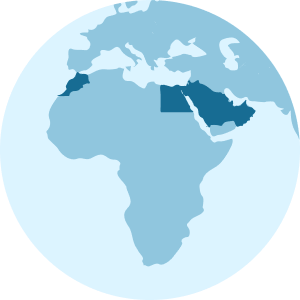






















 Pay
Pay  Language
Language  Currency
Currency 


















 No results found
No results found



